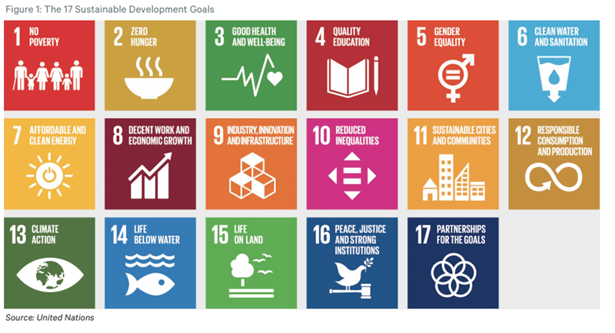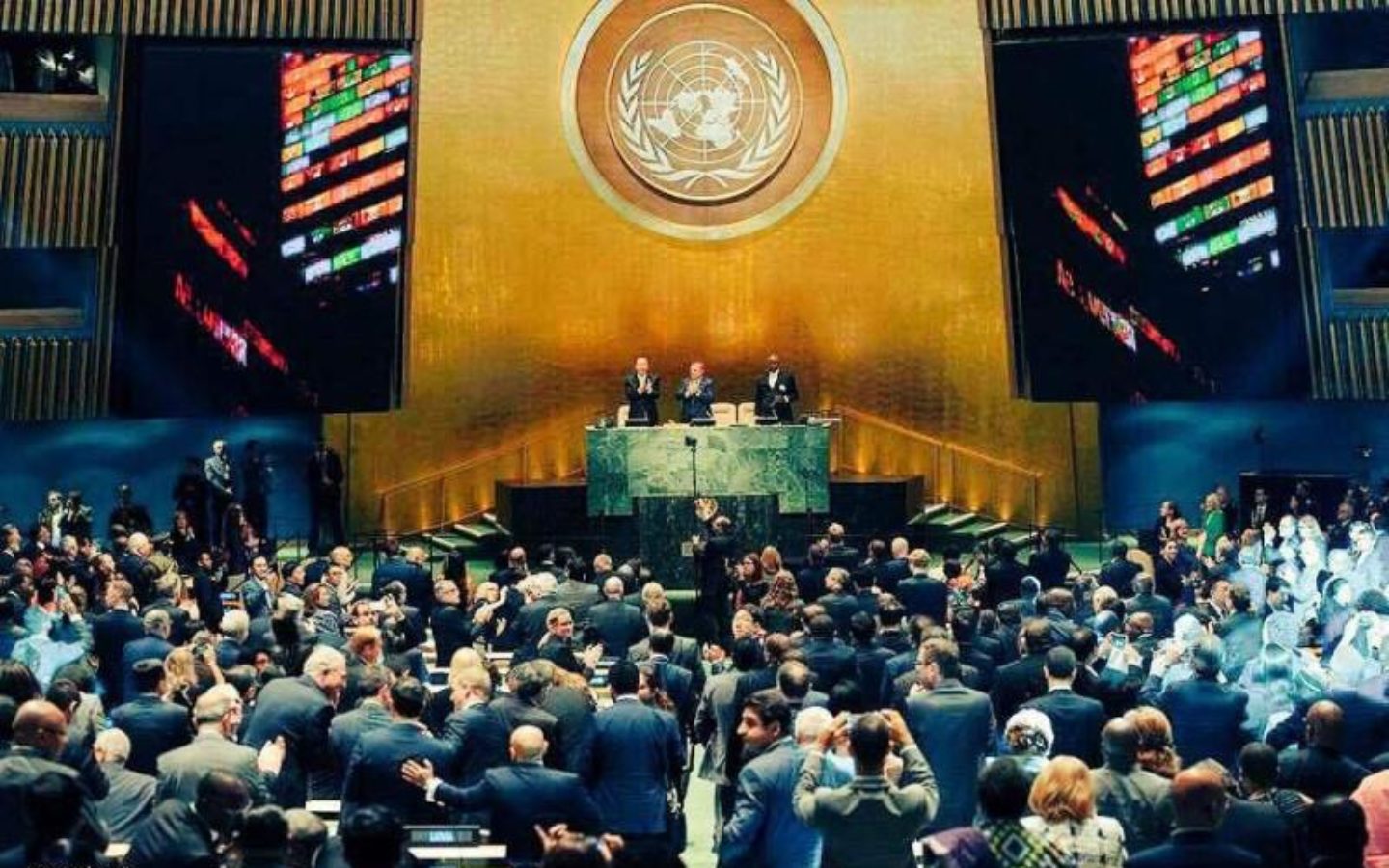What Are The Sustainable Development Goals (SDGs)
The 2030 Agenda for Sustainable Development, was adopted by the Member States of the United Nations in 2015 that followed the previous global development agenda the Millennium Development Goals. Agenda 2030 is a series of 17 goals called the Sustainable Development Goals (SDGs) which have 169 targets that seek to resolve social, economic and environmental problems. The SDGs look to harness economic growth whilst eradicating poverty and reducing inequality. Furthermore, the declaration language within the SDG text articulates specific principles around integration, universality, transformation and need for global partnerships.
The 17 Goals Aim to Achieve These Wider Aims by 2030:
- ending poverty and hunger everywhere
- combating inequalities within and between countries
- building peaceful, just and inclusive societies
- protecting human rights and promoting gender equality and the empowerment of women and girls
- ensuring lasting protection of the planet and its natural resources
- creating conditions for sustainable, inclusive and sustained economic growth, shared prosperity and decent work for all.
A key feature of Agenda 2030 is recognising the key role the private sector has in financing sustainable development in partnership with governments and civil society.

The Paris Agreement — COP21 & Why It Changed the World
In conjunction with the onset of the SDGs, the Paris Agreement came into force which is a legally binding international treaty on climate change. It was adopted at the Conference of the Parties (COP) 21 in Paris on December 2015 and entered into force on 4th November 2016. The Paris Agreement was quite significant in the multilateral climate process as it was the first time a binding agreement came into force.
What we see on the international stage is a paradigm shift. The 2015 Paris Agreement alongside the United Nations 2030 Agenda for Sustainable Development both represent a top-down and bottom-up approach in relation to implementation models. There was a narrative around government top-down mandates and a bottom-up country-driven implementation process.
In 2013, the Parties to the UN Framework Convention on Climate Change (UNFCCC) mandated that each Member State submit a national climate action plan called Intended Nationally Determined Contributions (INDCs) representing a demarcation from the Kyoto process. This was a bottom-up approach whereby nations were free to set and determine their own national climate targets, instruments and nationally determined contributions (NDCs).
In theory, once a nation then ratified the Paris Agreement (Treaty), its INDC would convert into an NDC. In practice, not all countries converted their INDCs to NDCs and some chose to revise INDC in the conversion process. The provision within the Paris Agreement requires that each Member to the Agreement (Nation) submit their country plan that is updated every five years. Perhaps the true success of the Treaty will be attributed to the strategic documents that dig into the detail around the specific commitments to greenhouse gas reduction, the 165 NDCs representing all Member States which go further than merely mitigating emissions. We see the innovation adaptation measures that also address and promote sustainable development in line with Agenda 2030.
Shift from Shareholder Value to Stakeholder Capitalism
Stakeholder capitalism was a popular management theory that surfaced in 1950–60s that focused on constituents rather than shareholders; it made a more pronounced appearance during the 2008 financial crisis and is once again finding its voice amidst the climate crisis. There is a shift in business frameworks due to the increasing social challenges on the rise due to the Covid19 Pandemic. We are utterly aware of Larry Fink’s annual CEO letter placing long-term sustainability at the centre of his investment approach which either shamed or furthered best practice in the space — we see other managers and institutions following suit in an attempt to reshape the face of finance. The influx of new regulations around climate disclosures, a push for RFPs around ESG mandates and impact investments has, and will continue to, further Agenda 2030 as many investors not only want to make a financial return but see a tangible social externality.
Regenerative Leadership & Proactive Compliance — A Shift from Reactive Investing
Re-thinking our relationship with regulation is key — perhaps outdated but still trending, is the notion that regulation slows down business and decreases competitiveness to delay growth. We now see the proof in the data, George Serefeim at Harvard Business School has found that strong sustainability performance is actively translating to increased valuation premiums.
Of course, a return on an innovative, sustainable business will be difficult to measure on a quarter-to-quarter basis. Although, figures from Fidelity’s Putting Sustainability to the Test Report (2020) illustrated that stocks at the top of the fund house’s ESG rating scale outperformed those with weaker ratings in every month from January to September (apart from April) 2020. The Report further suggests that stocks with higher ESG ratings also have a lower beta and less prone to volatility in the broader market (FTAdviser.com).
Leading on regenerative proactive practices at the outset of investment practices and shifting away from reactive negative environmental social and governance (ESG) screening may help companies steer clear from green and/or impact washing which will not only cultivate a theory of change that is sustainable, but deliver financial returns.
The United Nations & Advocacy Platforms
Today, the Division for Sustainable Development Goals (DSDG) in the United Nations Department of Economic and Social Affairs (UNDESA) provides substantive support and capacity-building for the SDGs and their related thematic issues, including water, energy, climate, oceans, urbanization, transport, science and technology, the Global Sustainable Development Report (GSDR), partnerships and Small Island Developing States. DSDG plays a key role in the evaluation of UN systemwide implementation of the 2030 Agenda and on advocacy and outreach activities relating to the SDGs.
The UN Global Compact is one of the leading sustainability initiatives that calls on companies to align strategies and operations with universal principles on human rights, labour, environment, and anti-corruption. Marrying corporate initiatives to Agenda 2030 will, and continue to, further best practice.

Nisaa Jetha is climate change advocate who was instrumental in curating a side event at COP21 that resulted in the Paris Agreement. She was amongst a select few outside of government invited to the adopted of the United Nations Sustainable Development Goals (SDGs). A global strategist, impact advisor and trained solicitor looking to move the needle into sustainable finance.
Article First Published on Medium.

